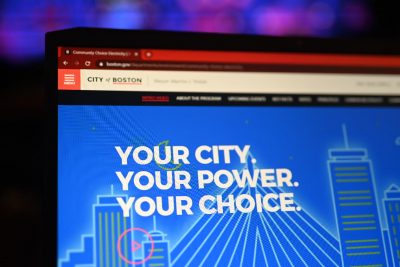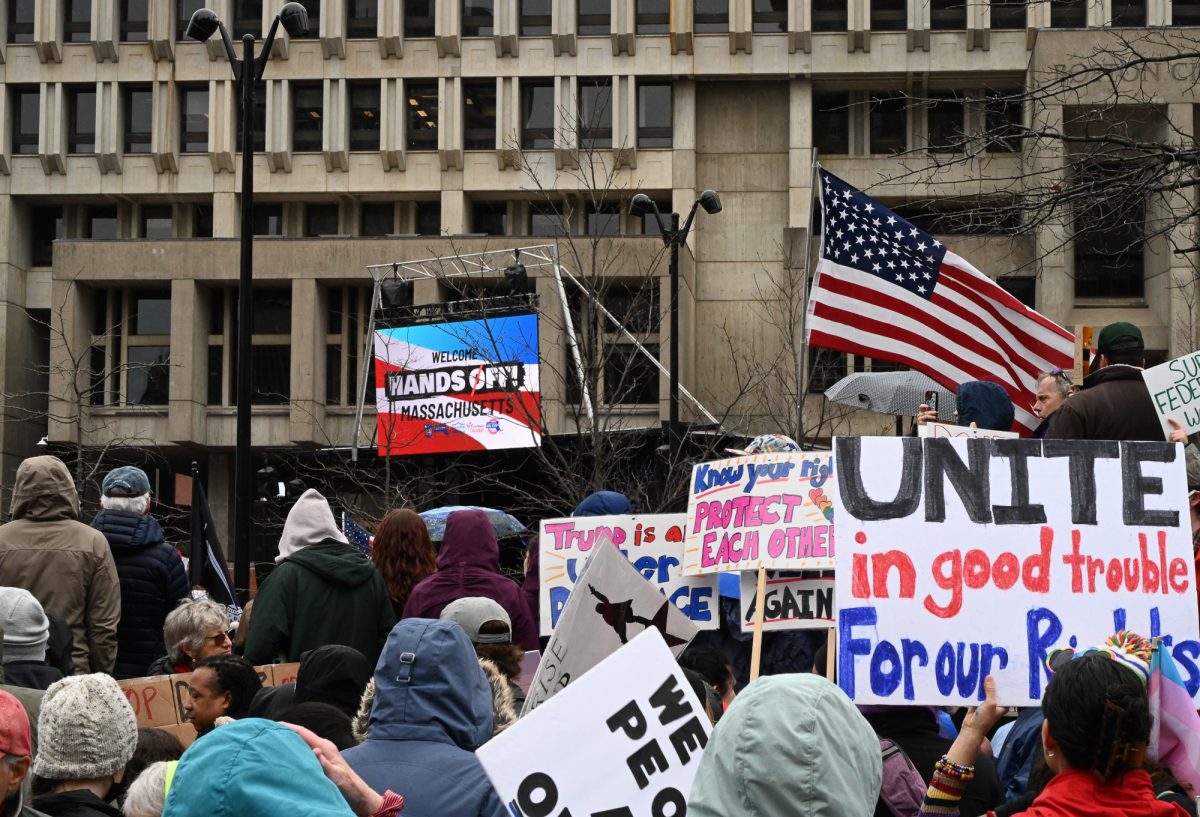The City of Boston has taken the final steps toward implementing its Community Choice Electricity program, a plan aimed at offering businesses and residents more stable and affordable electricity from renewable sources.

Boston would negotiate prices on behalf of those who participate in the program, using residents’ “collective buying power” as leverage for assembling what’s expected to be the largest municipal aggregation program in New England.
The program is slated to launch Feb. 1, and residents will be automatically enrolled unless they opt out.
“Boston is already one of the most energy efficient cities in the United States,” Mayor Marty Walsh said in a press release, “and the start of the Community Choice Electricity program is an important step in helping us reach our ultimate goal of carbon neutrality by 2050.”
Residents began receiving notice of the program last week. Boston has contracted Constellation NewEnergy Inc. to serve as the default supplier unless a customer chooses not to participate.
Abner Tsadick, manager of government aggregation at Constellation, said the company’s experience in energy supply aligned with Boston’s climate awareness interests.
“This is a brand new program for Boston,” Tsadick said. “From our perspective, this is helping a customer, providing a solution that they’re looking for, helping that get off the ground in a fairly quick fashion and ironing out all the wrinkles that are related to such a large program.”
Beginning Dec. 14, the City will host 11 webinars in multiple languages for discussions with local communities on the program’s logistics.
Constellation will offer three rates for consumers: Optional Basic, Standard and Optional Green 100, ranging from $0.10959 to $0.14764 per kilowatt-hour. These rates also vary in what sources are used to supply that energy, with the Green 100 option entirely supplied by renewable resources.
The plan is part of the City’s efforts to reach carbon neutrality by 2050, a goal set by the Walsh administration’s Climate Action Plan.
Tsadick said higher demand for the Green 100 option could signal renewable energy’s feasibility in the market to energy providers, and that Boston’s program may prompt other cities to pursue similar green energy initiatives.
The benefits of the program extend beyond contributing to a reduced carbon footprint, said David Musselman, director of the Municipal Energy Unit for Boston’s Office of Environment.
“We believe that what we’re able to offer to customers is a more stable product so the price won’t change as frequently,” Musselman said. “We will be able to go back into the market at times when we expect prices will be lower for future contracts and test the market, and if the pricing is good, to sign a replacement contract.”
The CCE program will accommodate lower-income customers, offering an additional electricity rate reduction of at least 1 cent per kilowatt-hour, paid for by a subsidy from a solar power developer, according to Musselman.
“On the commodity component, the electrons or the electricity that we are happy to be providing,” Musselman said, “just has not really been done on any sort of scale.”
Andy Wells-Bean, campaign coordinator for local environmental advocacy group Boston Climate Action Network, said low-income households tend to spend a higher percentage of their income on electricity than upper- and middle-income households.
He added that overall cleaner energy accompanies decreased costs in the CCE program.
“If you stick with Eversource, you’re getting less renewable electricity, and you’re paying slightly more for that for the privilege of dirtier electricity,” Wells-Bean said. “If you stay in the program … then you get slightly cheaper electricity, and you get greener electricity. That seems like a no-brainer.”
Ben Hellerstein, state director for environmental advocacy group Environment Massachusetts, said the program is a strong first step.
“In order to prevent the worst impacts of climate change and transition to a 100-percent renewable future, we’re going to need sustained action across all parts of the state and all sectors of our economy,” Hellerstein said. “Certainly, we need to keep pushing on this … for years and years to come.”





















































































































